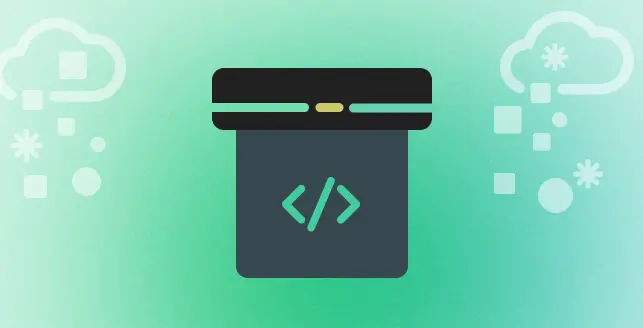
In an age where digital transactions reign supreme, safeguarding sensitive financial information is paramount. As businesses increasingly rely on digital transactions, the protection of sensitive financial data, particularly credit card numbers, is very crucial.
Despite rigorous security protocols, the specter of credit card number disclosure persists, casting a shadow over both enterprises and consumers.
Displaying the whole 16-digit credit card number discloses sensitive information. An attacker will use different ways to compromise the credit card details of the users.
In this blog, we uncover the multifaceted risks associated with credit card number disclosure, shedding light on its potential repercussions and equipping you with strategies to mitigate this pervasive threat.
What are the impacts of credit card number disclosure?
The disclosure of credit card numbers without proper authorization can have serious consequences for both individuals and organizations involved.
These impacts can be detrimental and wide-ranging:
1. Financial losses
Unauthorized disclosure of credit card numbers can lead to immediate financial losses for the cardholder.
Criminals may use the card for fraudulent transactions, leading to charges that the cardholder is responsible for unless promptly reported.
2. Identity theft (Loss of personal data)
Credit card numbers are valuable pieces of information for identity thieves. Disclosure can facilitate identity theft, allowing criminals to open new credit accounts or engage in other fraudulent activities in the victim’s name.
3. Fraudulent charges
Unauthorized users can make unauthorized purchases and charges using the stolen credit card number, leading to disputes and investigations to reverse these transactions.
4. Credit score damage
Fraudulent activities resulting from credit card number disclosure can negatively impact the victim’s credit score. This can make it difficult to obtain loans, credit, or other financial services in the future.
5. Legal consequences
The unauthorized disclosure of credit card numbers is illegal in many jurisdictions. Perpetrators can face criminal charges, fines, and imprisonment if caught and prosecuted.
6. Regulatory penalties
Businesses that fail to protect customer credit card data may face regulatory fines and penalties for non-compliance with data protection and privacy laws, such as the Payment Card Industry Data Security Standard (PCI DSS).
7. Financial liability for businesses
Businesses that experience credit card data disclosures may be liable for compensating affected customers and covering the costs of investigating the breach, notifying customers, and implementing security improvements.
8. Operational disruptions
Organizations that experience data breaches or disclosures may face operational disruptions, including investigations, remediation efforts, and potential lawsuits.
9. Costs of security improvements
Organizations may incur significant expenses to improve their security measures, implement better data protection practices, and recover from the incident.
10. Psychological stress
Victims of credit card disclosure may experience emotional stress, anxiety, and frustration as they navigate the aftermath, including resolving fraudulent charges and addressing credit score issues.
Given these significant impacts, individuals and organizations must prioritize the security of credit card data and implement robust security measures, encryption, access controls, and compliance with relevant data protection regulations to prevent unauthorized disclosures.
How can you prevent credit card number disclosure?
Preventing the disclosure of credit card numbers is crucial to protect individuals and organizations from fraud and financial losses. Here are some important steps and best practices to prevent credit card number disclosure:
1. Secure payment processing
If you’re a business owner or managing an e-commerce website, ensure that your payment processing systems meet industry security standards such as the Payment Card Industry Data Security Standard (PCI DSS).
2. Use secure websites
When making online purchases or transactions, look for “https://” in the website’s URL and a padlock icon in the address bar. These indicate a secure connection, which helps protect your data.
3. Beware of phishing
Be cautious of unsolicited emails, messages, or phone calls requesting your credit card information. Verify the legitimacy of the request before sharing any sensitive data.
4. Use strong passwords
Protect your online accounts with strong, unique passwords. Avoid using easily guessable information like birthdays or common words.
5. Enable Multi-Factor Authentication (MFA)
Whenever possible, enable MFA for your online accounts, including banking and payment platforms. MFA adds an extra layer of security by requiring multiple forms of authentication.
6. Keep software updated
Ensure that your devices and software, including web browsers and operating systems, are up to date with the latest security patches to protect against vulnerabilities that could be exploited by attackers.
7. Use trusted merchants
When shopping online, purchase from reputable and well-known merchants. Check reviews and ratings to assess their trustworthiness.
8. Protect your physical cards
Keep your physical credit cards in a secure location, and never leave them unattended. Report lost or stolen cards immediately to your card issuer.
9. Shred documents
Dispose of credit card statements, receipts, and other documents containing sensitive information by shredding them rather than throwing them in the trash.
10. Monitor account activity
Regularly review your credit card statements and account activity for any unauthorized or suspicious transactions. Report any discrepancies to your card issuer immediately.
11. Use virtual credit cards
Some credit card issuers offer virtual credit card numbers, which are temporary, one-time-use numbers for online purchases. Consider using these for added security.
Preventing credit card number disclosure requires vigilance, awareness, and responsible handling of sensitive information. By following these best practices, individuals and businesses can reduce the risk of credit card data breaches and unauthorized disclosures.
Beagle security will proactively secure your Web apps and APIs with automated penetration testing and actionable remediation insights. Read more: Beagle Security: Web Application Penetration Testing Tool





